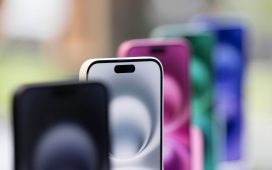Two Chinese nationals have been jailed for tricking Apple into replacing counterfeit iPhones with authentic ones.
Haotian Sun and Pengfei Xue, both Chinese citizens living in Maryland, had been convicted last year in a scam in which they — along with the co-conspirators — submitted fake iPhones to Apple for repair in hopes of getting genuine phones in return, the U.S. Department of Justice (DOJ) said last week.
“As part of the scheme, Sun and Xue would receive shipments of inauthentic iPhones from Hong Kong at UPS mailboxes throughout the Washington, D.C., metropolitan area,” the DOJ said in a news release. “They then submitted the fake iPhones, with spoofed serial numbers or IMEI [international mobile equipment identity] numbers, to Apple retail stores, including an Apple Store in Washington, and other authorized Apple service providers.”
In all, the scammers sent Apple more than 6,000 phony iPhones between May 2017 and September 2019, causing a loss of more than $2.5 million. Sun and Xue, both 34, were convicted in February of conspiracy to commit fraud and mail fraud.
Sun was sentenced to 57 months in prison, three years of supervised release, and more than $1 million in restitution to Apple. Xue received a 54 month sentence, three years of supervised release, and $397,800 in restitution.
The sentencing comes as a number of companies are pushing back against various forms of returns fraud.
It’s a problem that has ballooned to record levels, with American merchants losing an estimated $101 billion in 2023 due to fraudulent returns and abuses of returns policies.
Speaking with PYMNTS in August, Hannah Bravo, CEO of Loop, offered analysis of these rising challenges and how businesses can effectively address them.
“The tightening economy has led to consumers getting creative when it comes to returns fraud, and online shopping is just making it easier,” Bravo said. “Along with this, the intent to use items only temporarily and dissatisfaction with product quality are also driving factors in the rise of policy abuse.”
This behavior, Bravo added, “might be a reaction to overly lenient returns policies that were prevalent during the eCommerce boom and the pandemic, when companies prioritized shopper convenience over profitability.”
But in spite of its financial toll, Bravo said returns fraud presents a major opportunity for brands and solution providers alike.
“Returns fraud and policy abuse have become difficult behaviors for retailers to prevent, turning into a major drag on many brands’ margins and contributing to major financial losses,” she said.











